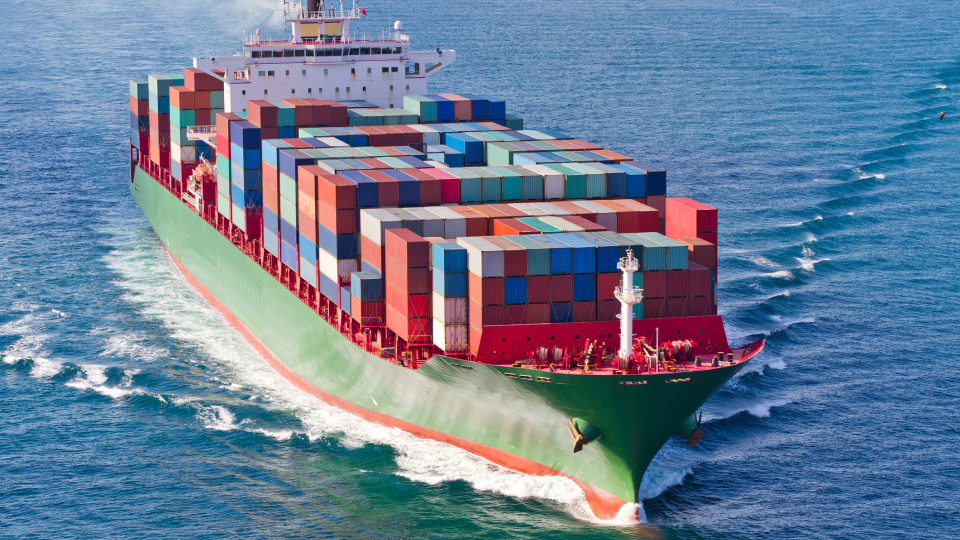Green Shipping
The United Kingdom stands as one of the foremost maritime powers worldwide, with the sector making a substantial annual contribution of up to £13.8 billion to the UK economy, sustaining approximately 260,000 jobs. On a global scale, the maritime industry is on the verge of substantial and transformative change.
Much like how Britain led the way during the industrial revolution, the UK’s maritime sector is poised to seize the opportunities born from this transformation, driven by clean growth, digitalization, and automation. This shift will pave the way for the expansion of a new Global Britain through increased exports and global influence.

Opportunity highlights
The maritime industry is undergoing a transformation due to upcoming technologies and regulatory changes:
Decarbonisation of Shipping and Regulation
The International Maritime Organization (IMO) has set ambitious goals to reduce greenhouse gas emissions from international shipping by at least 50% by 2050. The UK offers investment opportunities in the development of alternative fuel-powered vessels, integrating ports into decarbonized energy networks, and supplying the fuels of the future.
Digitalisation of Ports and Shipping
The UK’s shipping technology sector is expected to reach £13 billion annually by 2030, driven by the digitalization of ports and shipping operations.
Marine Autonomy
Innovations in marine autonomy are poised to revolutionize the industry, enhancing the efficiency of shipping operations.
Maritime Regulation and Insurance
The UK is a global leader in maritime professional business services, providing insurance, regulation, and management for the world’s maritime sector.
Shipbuilding, Refit, and Repair Opportunities
Increasing demand for complex ships, coupled with the UK’s commitment to reinvigorating the shipbuilding sector, opens up opportunities in ship construction, refitting, and repairs.
World-class Marine Science Industry
The UK is a significant player in global marine science, home to globally renowned institutions such as the UK Hydrographic Office.
Commercial maturity
The United Kingdom’s maritime industry boasts centuries of accumulated expertise and has established global benchmarks for the entire sector.
The UK’s influence and thought leadership are prominent in both business and academia. As a hub of innovation and expertise, the UK nurtures a business environment marked by intellectual dynamism, offering access to not only top-quality professionals but also the latest cutting-edge ideas within the field.
UK assets
The UK possesses key assets and clusters with the potential to take a lead in the supply of clean maritime technologies, offering attractive opportunities for investment. Some of the notable assets include:
Baltic Exchange
The Baltic Exchange is a globally renowned source of independent maritime market data, offering various services such as academic-taught courses and free debt dispute resolution for its members.
Lloyd’s Insurance Markets
Lloyd’s is the world’s preeminent insurance and reinsurance marketplace, covering more than 200 territories. They provide a wide range of insurance coverage for the shipping industry, including ship crew accident cover and carriers’ liability insurance.
Lloyd’s Register
Lloyd’s Register is a global professional services organization specializing in engineering and technology solutions for the maritime industry and the broader ocean economy. They collaborate with global and industry leaders in the transition towards a more sustainable world.
Shipbuilding Heritage
The UK boasts an internationally renowned shipbuilding heritage, with industry leaders like Cammell Laird and Harland and Wolff at the forefront of environmentally friendly maritime technology.
Ports Infrastructure
The UK is home to the second-largest ports industry in Europe, offering a robust foundation for future expansion and attractive opportunities for investors.
Furthermore, England’s freeport model incorporates a comprehensive package of measures, including tax reliefs, customs support, business rates retention, planning assistance, regeneration initiatives, and support for innovation, trade, and investment, making it a compelling environment for maritime businesses.
R&D capability
The United Kingdom houses several prestigious universities with a rich history of expertise and innovation in the maritime sector. Notable examples of leading maritime research and development (R&D) organizations in the UK include the National Oceanography Centre and the Southampton Marine and Maritime Institute.
The UK’s commitment to advancing clean maritime technology is evident through its funding of the Clean Maritime Demonstration Programme, allocated a substantial £23 million. This funding follows an independent assessment by Innovate UK, which identified and approved 55 projects for financial support. Additionally, a multi-year follow-up version of this programme is currently under development and will be launched in the near future.
In response to a request from the British Port Association, Members of Parliament have expressed support for a co-financed model of shore power as a strategy to reduce emissions from shipping.
R&D tax credits complement these initiatives, offering further incentives for innovation. They reflect the UK’s commitment to promoting environmentally friendly innovations within the maritime industry and align with the nation’s broader dedication to achieving net-zero emissions.
Business and government support
The UK government’s update to its 2017 National Shipbuilding Strategy will outline its intentions to create a conducive environment for success across all segments of the industry, spanning from shipyards constructing warships to those involved in building offshore wind vessels.
One notable aspect of this update is the introduction of the Future Maritime Support Programme, a substantial investment valued at £5.2 billion. This program is projected to sustain more than 9,400 British jobs, underscoring the broader ambitions set out in the comprehensive strategy.
The UK’s Maritime 2050 strategy is geared towards proactively addressing the challenges and opportunities that the maritime sector faces. It also takes into account the UK’s inherent strengths, positioning the nation to fully capitalize on them. The UK’s Transport Decarbonisation Plan further commits the country to advancing decarbonization within the maritime industry, thereby contributing to a cleaner and more sustainable sector.



